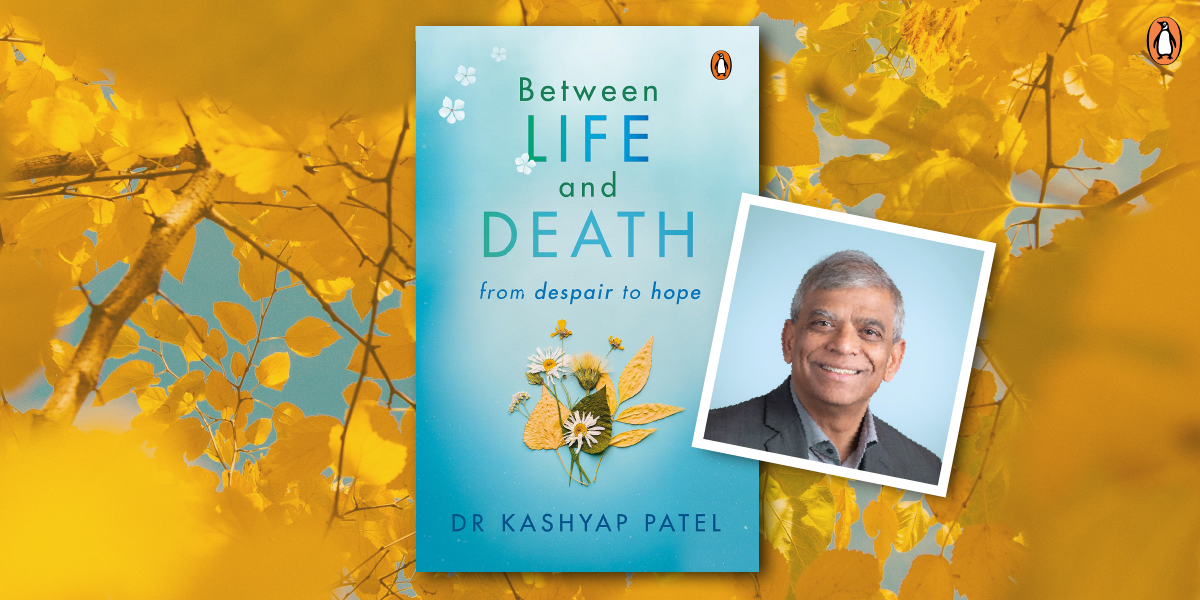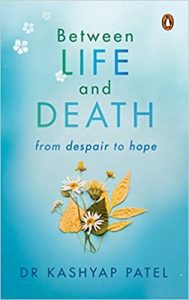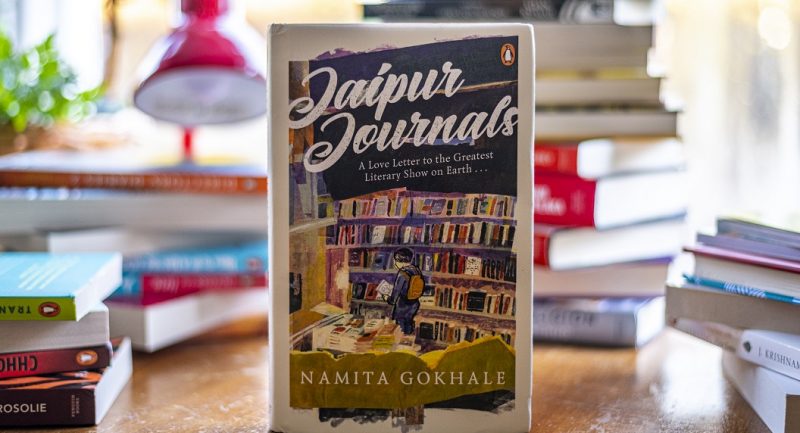

Dr Kashyap Patel is a renowned oncologist in the US who works with terminally ill cancer patients. In Between Life and Death, through him, we meet Harry, who, after a life full of adventure, is diagnosed with terminal lung cancer. As he stares death in the face, Harry leans on Dr Patel, an expert in understanding the process of death and dying. His questions and fears are addressed through the stories of many other patients that Dr Patel has treated-from the young and vivacious to those who had already lived full lives, from patients who could barely afford their rent to those who had been wildly successful. What ties these stories together is the single thread of the lessons Harry learns along the way, lessons that ultimately enable him to plan his own exit from the world gracefully-dying without fear.
We caught up with Dr Patel on his motivation behind turning to writing, his changed perspective on life as a result of his professional experiences and the advice he’d give to terminally-ill patients. Keep reading to find out his answers!
Question: From a renowned oncologist in the US to a now published writer of a book, this seems like quite
a journey to undertake. Please share with us what drove you to write this book?
I have lived in three different continents and treated cancer patients in multiple cities from Mumbai
to Manchester and then onwards to New York, US. My purpose of writing this book is to prompt
communal and personal preparation for a profound human experience that is unavoidable,
yet—paradoxically—too seldom a subject of open conversation. I personally feel that humans will
have more meaningful and comfortable experiences of death if we do not treat death as a taboo
subject, or an event to be delayed through extreme, often painful measures that yield meager
improvement in longevity or quality of life. I, therefore, took on this arduous journey to share my
own experience of learning and teaching my patients about the process of death and dying so that
they can have a meaningful life until their scheduled departure from this planet into a blissful
infinity.
Question: Has your job as an oncologist changed your perspective on life? Do you think coming in contact
with terminally-ill patients every day has made you value life more?
Indeed my professional role as an oncologist and walking against the horizon of facing death and
finitude every single day, week, month and year for almost three decades has enabled me to peep
through my own mortality. More than half of the patients I take on to treat for cancer are not likely to
live beyond a few months to years. I have come to value life a whole lot more every second as I could
be one of them, with our roles reversed, having to prepare for my own journey.
Question: How difficult was it for you personally to face a terminally-ill friend and be their doctor? In what
ways was it different from treating a stranger?
I have a difficult time detaching and distinguishing between professional and personal relationships
when it comes to treating cancer patients. I tend to draw very close to my patients and eventually
they tend to become my own family members. Treating all cancer patients as if they were all my
family members allows me to put a complete closure and provides me with a sense of fulfillment and
yet, leaves behind the lasting struggle of separation.
Question: Could you share with us any instances in which a patient or their loved ones showed
extraordinary courage in the face of mortality? Do you think such stories should be discussed
more often?
Harry falls, one of my patients who was also a retired pilot from the Royal Air Force, when was told
about his grim diagnosis of terminal cancer with life expectancy measuring in weeks decides not to
pursue chemotherapy or any other treatments. He told me “After evaluating where I stand and how
I’ve lived all these years, I feel it would be best for me to start packing my bags for the ultimate and
infinite journey. … God blessed me with a life that I have no regrets over … Let’s face it, Doc. From
everything you’ve told me, treating my cancer is like trying to save an exploding plane in mid-air.
Chances are it’s not going to happen… I think of it like I’ve just received an upgrade on a long flight.
I’ve collected so many miles that God has granted me a charter flight to a destination unknown.
Now the only issue is the waiting time.” This book is based on my weekly conversations with him
until he dies.
Question: If you could give one advice to the loved one of someone who has cancer, what would it be?
“Live life to the fullest and be prepared to leave gracefully when treatment stops working.”









